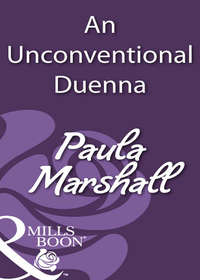
Полная версия
An Unconventional Heiress
Her comment was really a question and he took it as such.
‘Indeed, Miss Langley. I run a money-lending business, have connections with stone quarrying and the brick-fields, and own several ships. I occasionally do a little auctioneering and am at the present moment engaged in talks with the Yankee sealers about joining in business with them.’
‘You must be a very busy man. I was surprised to see that both you and Dr Kerr had time to visit Hyde Park yesterday.’
‘Oh, there’s more to life, Miss Langley, than work—as Dr Kerr and I both know.’
How odd it was that she should be enjoying her conversation with a man whom most of Sydney’s Exclusives dismissed as a coarse brute. Would Dr Kerr be as interesting to talk to? she wondered. Perhaps even more so, although most people in Sydney would doubtless tell her that she should not be thinking of, or talking to, either of them.
As though he had been reading her mind again, Tom picked up one of the bales of silk and murmured softly, aware that their lengthy tête-à-tête was drawing curious stares, if not to say glares. ‘If I may advise you, Miss Langley, it may not be altogether wise to speak overlong with me, or my friend the Doctor. Every tabby-cat in Sydney will be at your throat if you do.’
‘Why, Mr Dilhorne,’ she said, with a smile as dangerous as his own, ‘I know of no one who has the right to instruct me on whom to speak with and how long I may speak to them. I choose my partners in conversation, and my friends, for myself.’
It was not quite simple defiance that she was expressing. She found that she liked talking to him. He spoke to her as though she were another man, with no airs either of approval or of condescension. His obliquity pleased her, too, for he half-bowed to her again and continued their conversation as though he had not spoken and she had not answered.
Alan Kerr was wrong about her, Tom thought. She was not your usual fine lady and it was a pleasure to speak with her about his many interests since she had a good mind and was not afraid to use it. His intuition told him that there was something wrong with her, though, that in some strange fashion her world was awry. It was as if she were accompanied by a shadow. A shadow that prevented her from being as easy as she must have once been, a shadow that set her sparking at his friend every time she met him.
‘There is one question which I should like to ask you, Mr Dilhorne, if you would not find it offensive.’
‘Oh, I rarely take offence at anything, Miss Langley. Mostly it’s a pure waste of time. But should I do so, then the offender is sure to be told of it in no uncertain terms.’
His bright blue eyes twinkled at her, but she could suddenly see in him the danger of which she had been warned. Nevertheless she ploughed on.
‘Why is it that Governor Macquarie appears to favour the Emancipists when all the respectable folk in the colony think that he is wrong to do so?’
‘That is an easy question, Miss Langley. It is because he believes that the future lies with the people who stay here, like Dr Kerr and myself, and not with those who come and go, many of whom are idle.’
‘Like myself,’ she commented wryly. ‘And I am keeping you from your work, I fear.’
He made her no smooth, complimentary answer, merely said, ‘Yes, I am a busy man and time is money, you know. There is another thing that I ought to say—and with no offence taken on your part, I hope.’
‘I will answer you with your own words—if you remember them,’ she laughed at him, her face soft, quite unlike the virago who had repeatedly berated Alan Kerr.
‘Indeed, I do. It is this. There are some of us who have suffered grievously, who lost everything when they were brought here against their will—unlike me, for I had nothing to lose—and who now have an opportunity to gain everything. Do not judge too harshly those who see you as a bright reminder of everything that they have lost and who resent you accordingly. Not all of them will be Emancipists, for there will also be those free men and women who will dislike you for possessing the beauty and intellect that they lack. Be patient with them, Miss Langley, if I may so advise you, for you are one of the fortunate in this world—and there are many in New South Wales who are not.’
Emancipist though he was, Sarah could not take offence at his frankness, since what he had said to her struck home. For the first time she began to grasp that her suffering at the hands of Charles Villiers was as nothing to that which many of those around her, including some in the charmed ranks of the Exclusives, were enduring.
‘I will try to remember what you have said,’ she offered him at last. She thought that he was obviously talking of Alan Kerr, and for the first time she wondered what it was that the doctor had lost—and why.
‘I’ve been impertinent, I know,’ Tom told her with his cheerful smile, ‘to speak to you after this fashion, but remember this, I shall always be only too happy to be of service to you, Miss Langley.’
‘Miss Sarah to you, Mr Dilhorne.’
‘Miss Sarah,’ he repeated, before calling over the young man to pick up the silks and trimmings that she had chosen. He made his farewell, not with a bow, but with a hand tipped to his head as though still he wore the battered felt hat in which she had first seen him.
She had made a friend, a strange friend, a man who would never be her lover, but who would treat her as fairly as though no difference of sex existed between them. And if some odd things had begun to happen to Sarah in New South Wales, this was, perhaps, the oddest of them all.
John was predictably annoyed when gossip finally reached him of Sarah’s long conversation with the Emancipist to whom he had forbidden her to speak.
‘Really, Sarah,’ he said, anger plain in his voice, ‘he cannot but think that you are encouraging him. It is neither wise nor sensible of you to consort with such as Dilhorne. Who knows how he may behave towards you if he thinks you…light?’
‘What I do know,’ she flung back at him, ‘is that he warned me himself against talking to him, and his manner to me when we did converse was more proper than that of many gentlemen or military officers whom I have met here, or back in England.’
‘And that statement merely confirms me in my opinion of your lack of judgement, Sarah. The man is an ex-felon, a thief, a ruffian—you cannot know what you are saying.’
‘I know that he is the Governor’s friend, as is Dr Kerr—’ and why should she mention him? ‘—and that Lachlan Macquarie is not a fool, whatever you may think of me.’
‘I only know that every person of consequence in New South Wales disagrees with him over his attitude to Dilhorne and his friend Dr Kerr—and those like them. You would do well not to offend the people among whom you have chosen to live. No gentleman will respect you if he becomes aware that you are hobnobbing with such a ruffian as Dilhorne—to say nothing of what judgement on you our military friends will pass.’
Sarah felt suffocated. It was a feeling from which she had frequently suffered since Charles’s betrayal of her. To overcome it she turned angrily on her brother.
‘Gentlemen!’ she exclaimed. ‘The military! The proper thing to do! I sometimes wonder if we know what we are talking about. Do all these fine words mean that the men who utter them treat women with respect? If I had married Charles, how long would it have been before he took a mistress? As for the military, even innocent little Lucy Middleton knows that the officers, as well as the men, take their pleasure at the houses in The Rocks. Do not look at me like that, John. You know that I am telling the truth. I shall say no more, but I do reserve the right to choose my own friends, now and in the future.’
‘My only relief so far,’ he returned stiffly, ‘is that I am at least fortunate enough not to number Dr Kerr and Dilhorne among them. I can only hope that you will come to see the wisdom of what I have been saying.’
‘Oh, let us leave it at that.’ Sarah thought that she would begin to scream if this unseemly wrangle continued much longer. ‘I cannot say that confining myself to proper gentlemen has been very successful in the past. At least Tom Dilhorne spares me empty compliments and fine, meaningless manners. He talks more sense than all of the beaux I have ever met. Yes, yes,’ she added hastily when John began to reproach her again, ‘I will not speak of him in future, but I will not promise not to speak to him. And that is enough. Do not ask me for more.’
‘Quite so, you are determined to go your own way, I see, but do not be surprised if you find yourself left out of Sydney’s social life in consequence. I wish that I had never consented to bring you with me.’
Sarah bit back yet another riposte and simply swept out of the room, wishing for the thousandth time that she had never left England. Damn Sydney, damn its social life, damn Charles Villiers and Dr Alan Kerr, too—and damn John for being such a pompous ass. Conversation with him had become impossible.
What in the world was happening to her that she should use such dreadful language even to herself? If she weren’t careful, she would find herself saying these unladylike things aloud!
Chapter Three
‘So the Langleys have left Government House, I hear,’ said Alan Kerr, who was eating a bachelor dinner with Tom Dilhorne in Tom’s home off Bridge Street.
‘Yes. The Governor not only found them a house, not far from yours, through his aides, of course, but he also had it furnished and managed to conjure up a housekeeper for them into the bargain.’
‘A housekeeper? However did he manage that? There’s a desperate shortage of such useful creatures in the colony.’
‘Indeed.’ Tom drank up his port before giving a short laugh. ‘Well, if I tell you that he supplied them with Corporal Hackett’s widow, you’ll gather that he did them no favour. On the other hand, she was probably the only woman available.’
‘Mrs Hackett!’ Alan nearly choked over his lamb. ‘Now that I should like to see. The thought of that high-nosed fine lady, trying to keep in order a woman who has created chaos in every kitchen and drawing room of those foolish enough to employ her, has quite made my day. You know that Major Menzies threw her out of his home after she had reduced the whole household to tears? Yes, any woman who can reduce Mrs Menzies to tears is well worth knowing.’
‘Now what should make you think that she’ll subdue Miss Langley?’
‘Come, come, Tom, you know that in the great houses in which Miss Langley lived all the real business of running a home was done behind the scenes so far as she was concerned. Here, she’s living in a little two-storey villa, on top of the kitchen, the cooking and the cleaning. Yes, I can only imagine how hard she’ll find it to cope with such a come-down in the world. I am still wondering what odd whim brought her here, so far from the comforts of her English life.’
It was useless to argue with him. He had taken against Sarah Langley from the first moment they had met, and God only knew if he would ever be able to change his mind about her. Tom was sure that his friend was misjudging her badly, that he was unaware of the dark shadow in which the poor creature was living. He also knew that the misjudgement arose from the circumstances of Alan’s own sad past, and he could do nothing about that.
Best to say nothing, then. After all, it was likely that the Langleys’ stay in the colony would be short, and then there would be nothing to provoke Alan Kerr into forgetting his better self, the self that had rescued Tom Dilhorne from the gutter, and was also fiercely maintaining the good health of Sydney by his tireless hard work.
When Sarah heard that not only had the Governor found and furnished a house for them, but had also appointed a housekeeper to look after it for her, she was overjoyed.
Her joy did not last long. Mrs Hackett was a woman with the build of a pugilist and an expression that was so sour that Sarah felt she probably only had to look at milk to make it turn. If her manner to Sarah was surly, her behaviour towards the servants, also provided by Government House, was downright cruel. Sarah remembered her introduction to them and to Mrs Hackett’s malevolence…
She had been seated at her portable writing desk, trying to finish a letter to her best friend and John’s sweetheart, Emily Hazeldean, when Mrs Hackett had come in to say that the servants had just arrived in a gig driven by one of the corporals with whom her late husband had served.
‘The servants has come, Mam, and most unsatisfactory they are.’
Sarah put down her pen. ‘Why, what is wrong with them, Mrs Hackett?’
‘Sluts,’ she said, balefully, ‘and trollops.’
‘You are speaking of the servants?’
‘Who else, Mam? They’re a convict and a convict’s daughter, and no better than they should be. They’re waiting in the kitchen for you to look at them. You said as how you would.’
She spoke as though Sarah had expressed a wish so outlandish that it scarcely needed to be discussed. Sarah was half-annoyed, half-amused by her insolence, reflecting that from her manner of speaking one might think that Mrs Hackett was the mistress and Sarah the servant!
Settling into her new home had, as Alan Kerr had supposed, taken up a great deal of her time and energy. John, of course, had left everything to her. Not only that, he had departed earlier that morning on yet another sketching expedition and had announced that he would not be back until late since he proposed to dine in the Officers’ Mess again. To make matters worse, she was unable to mend her quill pen since he had inconsiderately made off, without permission, with her only sharp knife, having been unable to find his own.
The letter to Miss Emily Hazeldean would have to wait. Sarah set off for the tiny, stiflingly hot kitchen, sighing gently. What appeared to be two bundles of clothing stood waiting for her. The older and larger of the shapeless pair was introduced to her as Nellie Riley; the younger and smaller as Sukie Thwaites. They were both, it seems, untrained and their final roles as assistant cook and maid-of-all-work were to be decided in the future.
Sarah thought that she had never before seen such an unlikely pair. The Governor’s aide who had done all the hiring for them had explained that, due to the shortage of women in the colony, it would be difficult to find anyone who wished to be a servant at all, let alone anyone who was trained.
Both women were wearing coarse black-and-red print frocks, gaudy shawls and heavy, clog-like shoes. Their hair was pinned up inside large sun-bonnets, which they apparently wore indoors as well as out. At Mrs Hackett’s prompting they both curtsied and addressed Sarah as Mum. She was compelled to admit that Mrs Hackett had not misrepresented their unattractiveness.
She was also eager to inform Sarah of Nellie’s disreputable past.
‘This here girl was transported because she was a thief, and her brother with her. Best to keep an eye on the silver, Mam.’
What she did not say was that Nellie had supplemented her meagre income at the Female Factory, where convict women were sent on arrival, by selling herself to any man who had a penny or some little luxury to offer her.
‘If she don’t please, Mam, why, you’ve only to say so and we can send her back where she came from and ask for another gal to take her place.’
Sarah had sometimes been responsible for the hiring and firing of servants back in England, but she had never felt the kind of revulsion that she experienced when she contemplated returning this miserable piece of humanity to the Factory and its cruel discipline. Sukie, however, was a free agent, but as she was an Emancipist’s daughter Mrs Hackett made it plain that her feelings were not to be considered, either.
‘I hope that you will be happy here,’ Sarah said inadequately, aware of both the young women’s sullen resentment of her for her pampered appearance, as well as Mrs Hackett’s open contempt for what she thought of as Sarah’s softness. She suddenly remembered what Tom Dilhorne had warned her of in his shop and thought that it was the most sensible piece of advice she had been given since the Pomona had docked.
At least, back in England her life had been spent at some distance from that of her many servants, but here, in this tiny house, their presence would be close and confining. Never mind, she thought, I have my painting and drawing to occupy me, and when the weather is fine I shall be able to ride once John has found me a suitable horse—and perhaps a carriage.
One thing, at least, was to the good. Since setting up house she had been so busy that she had not had time to think about Dr Kerr, the Governor or Tom Dilhorne, or whether or not she ought to speak to Emancipists. Their luggage had to be unpacked, their meals overseen, and John’s comfort to be satisfied. He had no intention of looking after himself since in England he had never needed to; a highly trained staff had ministered to his every want. By contrast, in Sydney, all that they had in the way of servants were Mrs Hackett, two unwilling, untrained females and John’s man, Carter.
She returned to her writing desk and tried to continue her letter to Emily.
‘You would scarcely believe,’ she wrote, ‘how primitive we are here. All that distinguishes us from the Pomona is that the deck no longer heaves beneath our feet…’
She sneezed and looked around the tiny room. Dust was everywhere. Nellie Riley suddenly burst in, waving a feather mop and began to use it with great vigour—which only served to waft it around the room in a red cloud. This started Sarah sneezing again.
‘Sorry, Mum,’ said Nellie, looking anything but sorry. ‘Mrs Hackett was telling me to begin me duties by cleaning the room since it hadn’t been done for days.’
Her expression told Sarah, better than words, that the whole business of keeping clean was a complete waste of time so far as Nellie was concerned.
Sarah waved her pen at her. It was no longer fit to write with, but waving it somehow expressed her feelings.
‘Good God! Is it always like this? And where does the dust come from—and why is it red?’
‘Well, it’s allus hot, if that’s what you mean, but it’s not allus as dusty as this. It’s them bricks.’
‘Them bricks?’ asked Sarah faintly.
‘And the wind. Why, Mum, when the winds’ southerly the dust from the brick-fields blows across the town. It’s the Governor’s fault.’
This remarkable demonstration of the Governor’s climatic powers intrigued Sarah. ‘The Governor’s fault?’
‘Aye, Mum, cos he’s a-building of the barracks and the hospital and they need bricks from the fields. Are ye comfortable, Mum? Can I get you anything?’
Convict she might be, but there was a frankness about Nellie’s speech that interested Sarah, who was used to the servility of home. There was almost a contempt in the manner in which convicts and Emancipists alike spoke to the respectable. She knew now why Mrs Middleton had fumed to her about the speech and behaviour of the servants and shopkeepers in Sydney.
She sighed. The letter to Emily must wait. She walked to the window and looked out at the swirling red dust and the brazen sun. On the verandah opposite, not one, but two cockatoos, restless in their cages, squawked their displeasure at the world. She sympathised with them.
It was a relief when there was a knock at the door and Mrs Hackett came in with a letter for her. It was from Mrs Menzies, inviting her to a soirée at the weekend.
Later, looking back on this time, Sarah thought that her first weeks in Sydney passed like a dream. There was so much to arrange, so much to do that in the past had always been done for her. Fortunately for her peace of mind she had not encountered Dr Kerr again. He had been called, Tom Dilhorne told her, to treat a fever which was raging in Paramatta. His absence brought on such an access of high spirits that John feared that the fever had reached Sydney, or so he chose to quiz her, not knowing the true cause.
Sarah had been so busy herself that she scarcely found time to paint, although this had been the excuse she had given for undertaking this journey with John. Her father had encouraged her to develop her talent, but unlike John she had many duties that took up her time. First she had been her father’s hostess, her mother having died at her birth, and then, after her father’s death, she had performed the same function for her brother.
Coming to Sydney had seemed an opportunity to develop her skills since she thought that she would surely have more time to spend on herself. What she had not foreseen was that the primitive nature of life in New South Wales would create even more demands on her.
‘I would never have believed it,’ she told Lucy Middleton when they were upstairs in the Menzies’s bedroom, inspecting themselves in a long mirror before going downstairs to enjoy the pleasures of a typical Sydney soirée. ‘I spent this morning supervising the wash while Mrs Hackett went to the market to buy provisions. She had left Nellie in charge of it, but as you might guess her attitude to cleanliness is best expressed in the old adage, “what the eye can’t see the heart can’t grieve over.” She actually said to me, “I don’t know why we bother, Mum, it will only have to be done again next week. All this dusting and scrubbing don’t seem natural to me.”’
Lucy adjusted a curl. ‘I really can’t understand why you bother with her, Sarah. Why don’t you just send her back to the Female Factory?’
Sarah gave a sigh. She knew very well that Mrs Hackett would have preferred to send Nellie back to the factory soon after she had arrived in the hope that she might receive someone more suitable in return. She, on the other hand, found that although she could endure the idea of women whom she did not know being cooped up in prison, it was unthinkable that Nellie, whom she now knew, should be sent back there.
It was her free spirit, which Mrs Hackett could not crush, that Sarah found admirable, with the result that she had ended up being the laundress herself in order to ensure that Mrs Hackett’s complaints could not be seen to be justified and Nellie’s removal determined on. She found it impossible to try to explain this to Lucy, particularly since she found herself out of sympathy with the rest of the colonial ladies whom she had met. Their preoccupation with precedence, which she had thought to be peculiar to Mrs Middleton, turned out to be common to them all. Being a member of the highest society in England, she found little to choose between all those beneath her in rank.
So she changed the subject of Nellie and Mrs Hackett and commented on Sydney’s fixation with precedence and propriety instead.
‘You see, Sarah,’ said Lucy while she was rearranging the flowers in Sarah’s hair, ‘you’re so grand yourself that you don’t understand the differences that lie between a clerk in the Government offices and one of the shopkeepers. What’s worse, you’re so sure of yourself that you can afford to talk to Tom Dilhorne and Will French, even though they’re Emancipists—and do the wash, as well. You don’t fear that you’re lowering yourself, as Mama does. And it’s no good saying Pish and Tush to me, either, that’s the truth.’
‘I like it when you scold me,’ said Sarah. ‘It’s like being scolded by a kitten. No one else, apart from John, ever reprimands me.’ Which wasn’t strictly true, because Tom Dilhorne had said something similar to her the other day.
‘Oh, you may laugh,’ replied Lucy, ‘but you know that you wouldn’t marry any of them. Only one of your own kind.’
She stopped and looked thoughtfully at Sarah. ‘I don’t know, though. There’s a wildness about you sometimes. Look at the way you spoke to Dr Kerr in Hyde Park.’
‘Oh, Dr Kerr.’ Sarah shrugged. ‘Let us not speak of Dr Kerr. Forgive me, Lucy, for saying this, but you amaze me sometimes—you look as though you haven’t an idea in your head—and then…’ and she shrugged again.
‘I know—that’s what Mama and the men think, that I’m stupid. It’s better that way, Sarah. You don’t annoy them—and you can always get what you want if they believe that you’re just a dear little kitten.’







